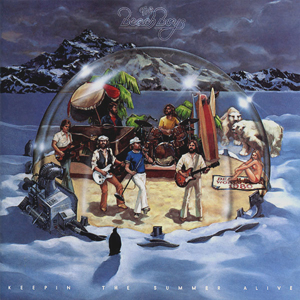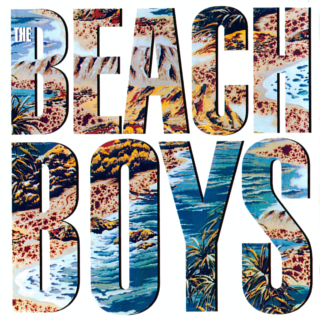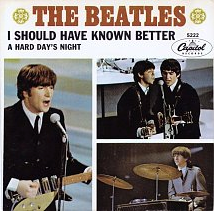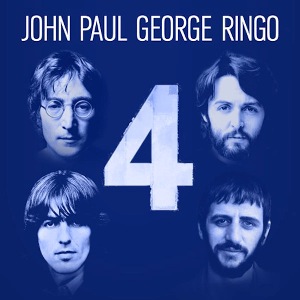The tracks "I Passed by the Building" through "Variant" features an unknown man on lead vocals, and it is presumed that Jandek plays the guitar on these tracks. The tracks "Part II" through "Only Lover" appear to switch up this arrangement and feature Jandek on lead vocals and the unknown accompanist playing proficient blues guitar, with the except of "Harmonica" which features solo harmonica. "Quinn Boys" appears to be Jandek solo, while the closer "One Minute" features the unknown accompanist singing lead vocals and it is unknown who is playing drums.
Not unlike its follow up, 1988's You Walk Alone , the songs appear to be recorded in one session or in multiple sessions under the same conditions. This quality gives the album a cohesiveness that sets it apart from albums like Chair Beside a Window that appear to be compilations of multiple sessions under different conditions and with different players.
The album seems to center around the dissolution of a relationship which has led to many theories. Some have theorized that because from this point on it is not clear that 'Nancy' is ever featured on an album again, it may be referring to her departure. It is unknown if there is any merit to this theory because no definitive proof exists.
"Part II" appears to be the second half of "Your Other Man" but for some reason is sequenced right before that track. "House of the Rising Sun" is the first and only adaptation of a traditional song found in Jandek's discography, it features a unique arrangement and does not borrow from any other modern arrangement of the song. "Quinn Boys" gets a sequel on 1988's You Walk Alone which contains the same lyrics.

Jandek is the musical project of Corwood Industries, a record label operating out of Houston, Texas. Since 1978, Jandek/Corwood Industries has independently released over 100 albums/DVDs of unusual, often emotionally dissolute folk and blues songs without ever granting more than the occasional interview or providing any biographical information. Jandek recordings have varied widely in style but are most commonly associated with a highly idiosyncratic and frequently atonal form of folk and blues music, often using an open and unconventional chord structure. Jandek's music is unique, but the lyrics closely mirror the country blues and folk traditions of East Texas. The name "Jandek" is intended to refer specifically to the musical project and not an individual, though Jandek is widely believed to be the brainchild of the enigmatic Sterling Smith who closely guards his privacy.

Ready for the House is the debut studio album by Jandek, and was released in 1978 by his own Corwood Industries label, with the catalog number #0739. The artist has said in letters that the number was meaningless. Corwood Industries reissued the album three times on CD, first in 1999, then sometime in the early 2000s, and again in 2005. Jackpot Records, with exclusive permission from Corwood, reissued the album on LP in 2008.

Surfer Girl is the third studio album by the American rock band the Beach Boys. It was released on September 16, 1963 by Capitol Records. Surfer Girl reached number 7 in the US during a chart stay of 56 weeks. In the UK, the album was released in spring 1967 and reached number 13. This was the first album by the Beach Boys for which Brian Wilson was given full production credit, a position Wilson would maintain for the next few years.

The Beach Boys Today! is the eighth studio album by the American rock band the Beach Boys, released on March 8, 1965. The album signaled a departure from their previous records with its orchestral approach, intimate subject matter, and abandonment of themes related to surfing, cars, or superficial love. It peaked at number four on US record charts during a 50-week chart stay and was preceded by the top 10 singles "When I Grow Up " and "Dance, Dance, Dance", along with "Do You Wanna Dance?" which reached number 12. When issued in the UK one year later, Today! peaked at number six.

Keepin' the Summer Alive is the 24th studio album by American rock band the Beach Boys, released on March 24, 1980, on Brother, Caribou and CBS Records. Produced by band member Bruce Johnston, following aborted attempts to have founding member Brian Wilson return to his former role, the album is the last with founding drummer Dennis Wilson, who would drown in December 1983. The album also features the Eagles' guitarist Joe Walsh on the opening track "Keepin' the Summer Alive".

The Beach Boys is the 25th studio album by American rock band the Beach Boys, released on June 10, 1985. Produced by Steve Levine, the album is the band's first recording after the drowning death of founding member Dennis Wilson. It was also the band's first album to be recorded digitally and the last released by James William Guercio's Caribou Records.

Livin' on the Fault Line is the seventh studio album by the American rock band The Doobie Brothers. The album was released on August 19, 1977, by Warner Bros. Records. It is one of the few Doobie Brothers albums of the 1970s which did not produce a Top 40 hit on the Billboard Hot 100. Still, the album received modest critical acclaim. Tom Johnston left the band early in the sessions. He is listed as part of the band but appears on little or none of the actual album; despite writing and singing five songs during the sessions for the album, they were not included on the final release. Much of this consistently mellow album has a jazz tinge, and the influences of R&B are palpable throughout. The track "Little Darling " is a remake of the Marvin Gaye 1966 hit.

"I Should Have Known Better" is a song by English rock band the Beatles composed by John Lennon, and originally issued on A Hard Day's Night, their soundtrack for the film of the same name released on 10 July 1964. "I Should Have Known Better" was also issued as the B-side of the US single "A Hard Day's Night" released on 13 July. An orchestrated version of the song conducted by George Martin appears on the North American version of the album, A Hard Day's Night Original Motion Picture Soundtrack.

Pacific Ocean Blue is the debut solo album by American songwriter-musician Dennis Wilson, co-founder of the Beach Boys, and the only one to be released in his lifetime. When released in August 1977, it was warmly received critically, and noted for outselling the Beach Boys' contemporary efforts. Two singles were issued from the album, "River Song" and "You and I", which did not chart.
Jandek on Corwood is a documentary about veteran reclusive folk/blues artist Jandek. Unlike most popular music documentaries, the subject himself is not seen in the film in any way; instead, various critics, disc jockeys and journalists, many of whom have had some contact with the notoriously reclusive artist, discuss Jandek, his equally mysterious independent record label Corwood Industries, and his music.

"Getcha Back" is a song written by Mike Love and Terry Melcher for the American rock band The Beach Boys, on their 1985 album The Beach Boys. It was the band's first release since the drowning death of Dennis Wilson in 1983. The song peaked at number 26 nationally and number two on the Adult Contemporary chart. "Getcha Back" recaptured the sound and feel of the Beach Boys' early hits.

Naked in the Afternoon: A Tribute to Jandek is a tribute album compiled by Moscow, PA-based independent record label Summersteps Records. The album features cover versions of songs by the reclusive avant-folk/blues singer/songwriter Jandek. Many of the artists are members of the Summersteps roster or fans forming one-time combos to participate on the album, but the album also features contributions from Sonic Youth's Thurston Moore, Low, and Bright Eyes.

Down in a Mirror: A Second Tribute to Jandek is a tribute album compiled by Moscow, PA-based independent record label Summersteps Records, released as a follow-up to the label's first Jandek tribute, Naked in the Afternoon. As with Naked in the Afternoon, Down In A Mirror features cover versions of songs by the reclusive avant-folk/blues singer/songwriter Jandek. Some of the artists are members of the Summersteps roster or fans forming one-time combos to participate on the album, but the album also features contributions from Wilco's Jeff Tweedy, Six Organs of Admittance, The Mountain Goats, Kawabata Makoto of Acid Mothers Temple, Lewis & Clarke and Okkervil River.

"Don't Walk Away" is a song by the Electric Light Orchestra (ELO). It is featured in the 1980 feature film Xanadu in an animated sequence by Don Bluth.

The Dude is a 1981 studio album released and recorded by Quincy Jones. The album produced three U.S. Top 40 hits and features the debut of vocalist James Ingram on the singles "Just Once" and "One Hundred Ways," which reached No. 17 and 14, respectively, on the Billboard Hot 100. The Dude also contains "Razzamatazz," which reached No. 11 on the UK Singles Chart, one of Jones's few hits in that country. Belgian harmonica player and puccaloist Toots Thielemans appears on the instrumental track "Velas," later sampled by Jodeci on their 1996 single "Get On Up", as well as by producers Shut Up and Dance for the track "Waking Up," which appeared on Nicolette's first album, Now Is Early.

Frantic is the eleventh studio album by British singer Bryan Ferry, the former lead vocalist for Roxy Music. It was released on Virgin Records in 2002. The majority of tracks were produced by the team of Rhett Davies, Colin Good, and Bryan Ferry; David A. Stewart and Robin Trower also co-produced several tracks.

Five Three One - Double Seven O Four is the twentieth studio album by the English rock/pop group the Hollies. When rendered as digits, the album title is the band's name upside down in digital number view.

In the Key of Disney is the ninth studio album by Brian Wilson, released on October 25, 2011, by Walt Disney Records as part of the Disney Pearl Series. The album is the second release by Disney for Wilson, after Brian Wilson Reimagines Gershwin. Disney calls it "the album that marries the vision of two men who shaped the image of modern California – Brian Wilson & Walt Disney."

4: John Paul George Ringo is a digital extended play compilation released on 23 September 2014, as a free download by the iTunes Store. It features one solo song by each former member of the Beatles: John Lennon, Paul McCartney, George Harrison and Ringo Starr. It is the first official release to bring together their solo material.
10x10 is a posthumous solo album by Ronnie Montrose. Ronnie had been touring with bassist Ricky Phillips and Eric Singer (Kiss) in the early 2000s. Over three days in 2003 at Doug Messenger's studio in North Hollywood, the sessions produced 10 strong tracks of rhythm guitar, bass and drums with the intention to get a singer to for the vocals. Eventually Ronnie decided on the 10x10 concept, 10 tracks and 10 different singers. Early on, he was able to secure contributions from close friends and collaborators like Sammy Hagar, Edgar Winter and Davey Pattison. In the intervening years Ronnie battled prostate cancer and, at one point, hadn't touched a guitar for 2 years. Conflicts in scheduling led to the record remaining unfinished for years up until Montrose's passing in 2012. Along with completion of the vocals, the songs also needed lead guitar as well. Rickey Phillips, with the blessing of Ronnie's wife Leighsa and assistance of Eric Singer, picked up the reigns and completed the album. "After he passed, I had to carry on with what Ronnie wanted, because he was such a purist. The songs were cut to 2-inch tape and then transferred to digital, but I really needed it to be a cohesive record. I've done enough records to know how easily the levels of 10 different singers can sound disjointed if you don't stay on top of the production." As per Singer, "I have to give a lot of credit to Ricky Phillips. Ricky really wanted to see this thing through. It was more for Ronnie than just for himself, or for ourselves. We really believed what we had originally captured had a certain vibe and a certain magic to the people in that room when it was created. We felt like, 'Hey, this thing needs to get done. We need to see this thing through, for every good reason.'"


















